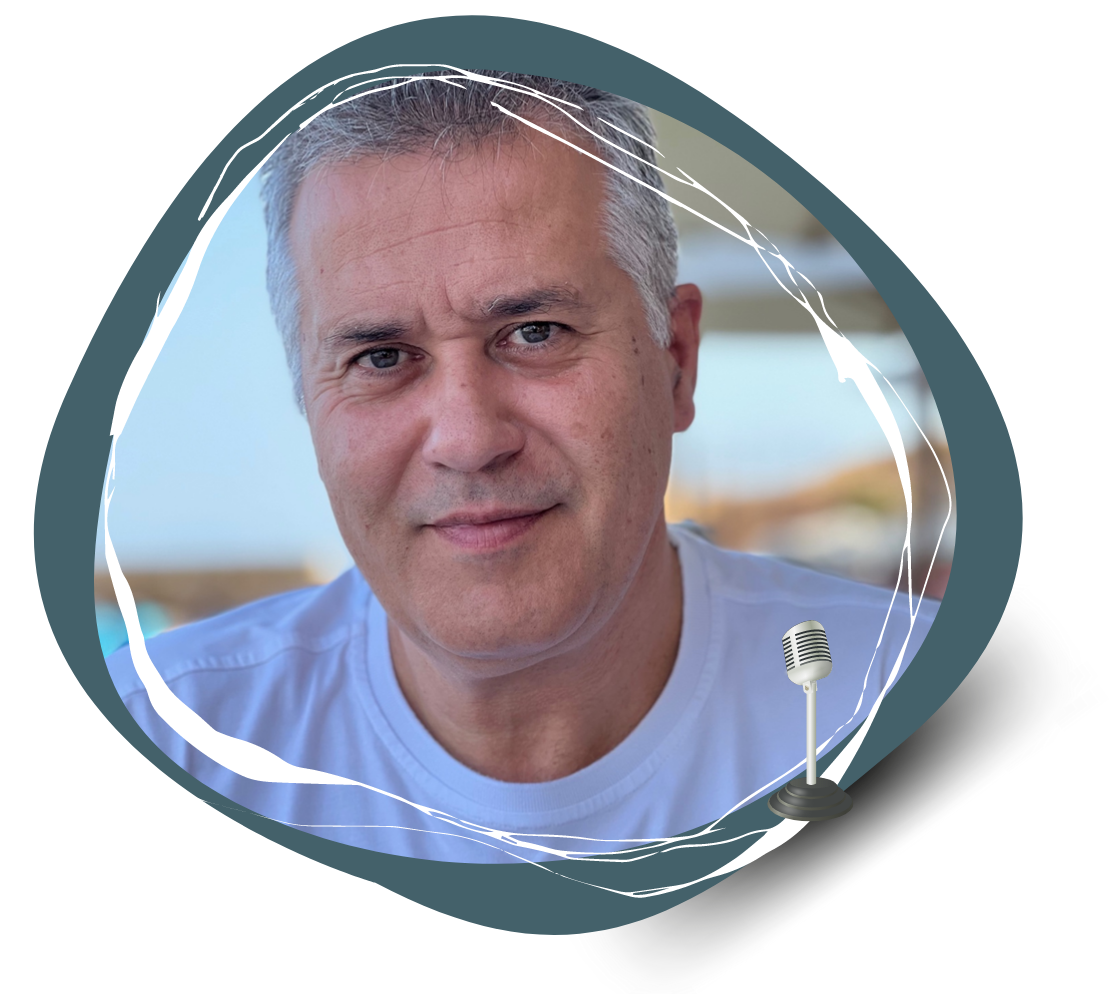Andreas Panagopoulos
Research Director, Hydrogeologist
Hellenic Agricultural Organisation, Soil and Water Resources Institute
a.panagopoulos@swri.gr

 You are coordinating the development of the irrigation advisory service.
You are coordinating the development of the irrigation advisory service.
What innovation do you bring in through ATLAS?
Our irrigation service is developed by the scientific teams of Julich Research Center, the National Observatory of Athens and my Institute, the Soil and Water Resources Institute, and provides the end user with a suite of data products that are precious to the everyday field management. Thus, it offers irrigation advice for a given field and crop expressed in various formats, including mm, volume per unit area, volume for the entire field. Moreover, it provides full analysis of the historical evolution of soil moisture profiles and climatic data, along with a one-week forecasting. Growing degree days may also be visualized selecting either ground meteorological stations’ data or earth observation driven calculations. In parallel, heat stress periods and daily frost hours may also be spotted and analyzed on the fly. What we consider of great added value to the user, is that our service provides an overview of the farmer’s performance with regards to irrigation practices. This means at your own time go back to the beginning of the cultivation period and study what went well and what was not such a good performance; When you stressed your plants and when you exceeded the optimal irrigation water application rate. Obviously, this study may act as a valuable self-improvement exercise towards saving energy, natural resources and indirectly cutting down agrochemicals and bills. As with all services in ATLAS, the irrigation service is by no means a black box package. This means we develop a fully functioning service that needs different components to operate. We offer all of these, but the end used decides which component to use from which vendor. This on the same time gives full flexibility to the software and in general the service developers. They can bring into ATLAS their service and make it available to all potential users. So, we offer a “mix and match” solution that can be tailored to the needs of the user and to which any service provider can potentially contribute supplying for instance climatic data or weather forecasts. To give an example, our service may retrieve climatic data from the owned stations installed in the region where the service is deployed, but alternatively it may retrieve earth observation driven calculations to provide the required Growing Degree Days for the crop in the field we are interested in. What is the breakthrough here, however, is the robustness of the algorithms we have developed and implemented into the solution we propose, along with the fact that our service provides valid irrigation advise with or without the use of climatic data, as it relies on soil moisture profiling and the accurate knowledge of soil characteristics. What’s more, even if you can’t or don’t want to invest in sensors’ infrastructure in your field, you can still get reliable information on your crop water demands when you decide you can or want to irrigate. You only need to provide basic information on your field’s treatment and status.
 How does the Greek innovation hub contribute
How does the Greek innovation hub contribute
to the development and promotion of the advisory service you head?
Our hub is based in Thessaloniki, where our Institute is located, and has as satellites the pilot fields located in Epanomi-northern Geeece and in Agia-central Greece. The latter satellite is home to the Pinios Hydrologic Observatory which is one of the nine sites in Greece that form the Hellenic counterpart of the International Long Term Ecological Research (ILTER) network and a member of the TERENO network too. As such, is a heavily instrumented sub-basin which hosts many state-of-the-art devices, that enable high frequency online monitoring of numerous parameters that are related to the water cycle, amongst others, thus providing for developing and testing the developed irrigation advisory services offering more than 70,000 data points daily. The pilot fields deployed in both piloting areas serve as living labs for assessing the efficiency and quality of the developed services by the scientific team involved in ATLAS, facilitating in depth research to new fronts, thus making sure that what we develop is error proofed and of high quality. To this end, our farming stakeholders being experienced professional farmers in Agia and amongst the market leader wine producers in Epanomi, offer a great task in being our first line strict evaluators of the services. Moreover, all piloting fields are making use of the market leader telecommunications protocols, which means that we may assess the functionality of each one and provide precious information on the suitability and the constraints of each technology. Having developed such an infrastructure, the hub creates the perfect environment to open consultation fora from various groups of stakeholders in shaping up the user interface of the service and the capabilities that the market is interested in. Equally important is the consultation on the market demands for the acceptability of digital services in agriculture that has been offered as part of the hub activities. An invaluable function of the hub is that it may attract services developers to test their service on our pilot fields data. The hub invites interested parties of the services and of course the ATLAS ecosystem to be informed and to have a hands-on experience on the capabilities of the system. This is facilitated not only at office environment but also, and perhaps most importantly, in the fields where they are offered the possibility to see the actual setup and discuss with the real-world users of the service. To feel the need of digital services one needs to know what this is all about and how it can help farming in its daily routine and overall improve business. The innovation hub supports the awareness raising of decision makers, groups of farmers, farming consultants and service retailers on the value proposition of digital agricultural services, especially in the context of the ATLAS ecosystem. This is facilitated through open days, seminars and presentations offered to various groups across the hierarchy pyramid, always under the umbrella of ATLAS project.
 Is there any value proposition
Is there any value proposition
for the post-ATLAS period?
Through ATLAS our team has invested a lot of time in R&D and managed to produce a product which we consider an excellent, well-documented and thoroughly tested service. The day after sees capitalization of our efforts through further developing, expanding, and perfecting our services utilizing the existing infrastructure and the stakeholders networking for real testing and more ideas to their functionality and usability. Doing this, we plan to further exploit existing and emerging technological breakthroughs. Making use of our hub we intend to expand our training and info networking systematically to reach beyond the country, mobilizing the opportunities offered by relevant R&D projects, targeting to widen the potential users of such services. We envisage our irrigation service to share a progressively increasing number of interested users through the ATLAS network. Beyond that, we plan to render our services part of nexus solutions in the agro-environmental ecosystem.




